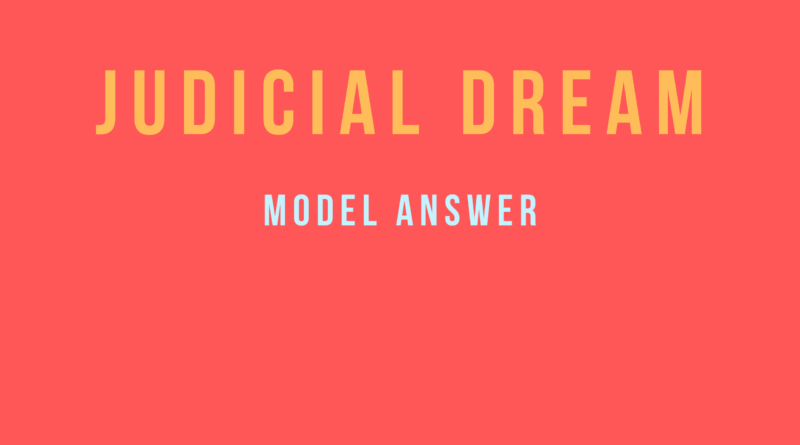SAME SEX MARRIAGE
State the current position with respect to same sex marriage in India.
A question arises whether a marriage of a boy with another boy who had undergone a sex change operation and became a female will be valid. In Corbett vs Corbett case court held that the sexual constitution of an individual is fixed at the birth and can’t be changed either by natural development of organs of opposite sex or by medical or surgical means in view of the decision such marriage will be invalid.
Ordinarily as well the dictionary meaning of marriage is that it is the social institution by which a man and a women are legally united and establish a new family unit.
However though the Hindu Marriage Act 1955 is completely silent on the issue of same sex marriage but one can infer from the absence of any explicit statutory bar on same sex marriage that the same is permitted under the Act.
Section 5 of the Act clearly lays down that marriage can be performed between ‘any two Hindus’ under the Act and does not restrict it to only a male & a female Hindu.
However the a dichotomy arises when one comes across section 5(iii) of HMA 1955 which talks about the age of a ‘bride’ and a ‘bridegroom’ implying that parties need to be of opposite sex.
Thus, the issue of same sex marriage needs to be addressed by the legislature and in the meanwhile courts may lean towards a more progressive view similar to the one observed by Justice Chandrachud while delivering the judgement in Navtej Singh Johar vs Union of India case. Therefore if the growing recognition of the right to privacy leading to recognition of autonomy in an individual’s private sphere cannot accept an archaic law such as Section 377 which intrudes upon the private life of consenting homosexual individuals, similar should be the case for same sex marriage.
The Delhi High Court had recently issued a notice to the Centre on a petition seeking a direction to the government to recognise same-sex marriages under the Hindu Marriage Act (HMA) and the Special Marriage Act (SMA).
The plea argued that the Supreme Court had in 2018 decriminalised consensual homosexual sex in India. It added that there was nothing in the HMA that mandated that marriage should take place only between a Hindu man and a Hindu woman.
Although there is no statutory bar under the HMA and the SMA against gay marriages, they are not being registered throughout the country and in Delhi as a result of the same, there are many benefits that would otherwise be available to heterosexual married couples that are not available to them. The prohibition of marriage of LGBT people on the basis of sexual orientation and gender identity is an absolute discrimination towards them and also violative of the right to equality as granted by the Constitution.
Also on the same issue a progressive view has been taken by Hon’ble Madras HC in the case of Arunkumar v. Inspector General of Registration where the right to marry under Article 21 of the constitution has been affirmed for transgender persons and holding that ‘bride’ under the Hindu Marriage Act would cover transgender persons who identify as women. The Court affirmed Ms. Sreeja’s self-identification as a woman and recognized her right to self-identify her gender and be included, along with other intersexes/transgender persons who identify as women, within the definition of “bride”. It noted the violation of her fundamental rights by the State authorities that refused to register her marriage.






